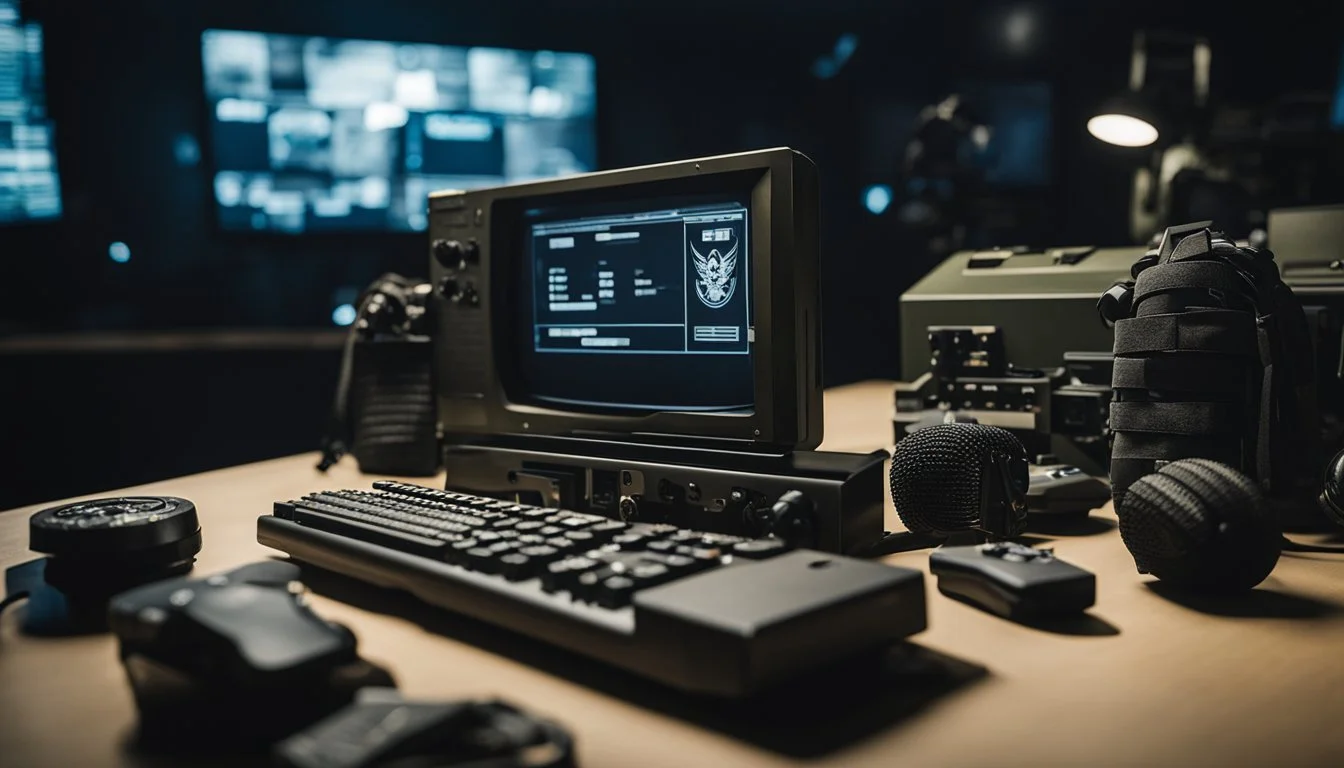6 True Crime Documentaries About Military Personnel
Riveting Stories of Honor and Betrayal
The intersection of military service and crime has produced some of the most compelling narratives in documentary filmmaking. These stories often reveal the deeply complex lives of soldiers who become embroiled in criminal activities, shedding light on the darker aspects of military life.
Why do these true crime documentaries about military personnel captivate audiences? They provide not only gripping tales of mystery and investigation but also a unique look at how the rigors of military life can intersect with personal and legal troubles. These documentaries offer a lens into a world where bravery and discipline sometimes coexist with profound personal challenges and moral dilemmas.
1) The Kill Team (2013)
"The Kill Team" is a documentary directed by Dan Krauss.
The film profiles Adam Winfield, a 21-year-old infantryman in Afghanistan who became a whistleblower.
Winfield exposed the brutal actions of his fellow soldiers, who were involved in the murders of Afghan civilians.
The documentary highlights the harrowing details of these war crimes.
It provides a close look at the psychological and moral dilemmas faced by soldiers.
"The Kill Team" reveals the challenges Winfield faced in bringing the truth to light.
For more information, visit the IMDb page.
2) The Invisible War (2012)
"The Invisible War" is a groundbreaking investigative documentary that focuses on the epidemic of sexual assault within the United States military.
Directed by Kirby Dick and produced by Amy Ziering and Tanner King Barklow, the film exposes the startling extent of sexual violence faced by military personnel, particularly women.
The documentary reveals that a female soldier in combat zones is statistically more likely to be raped by a fellow soldier than killed by enemy fire.
The film paints a vivid picture through interviews with victims, providing an intimate look at their struggles for justice and the systemic issues within the military's handling of such cases.
It premiered at the 2012 Sundance Film Festival and garnered widespread acclaim for its impactful storytelling and contribution to raising awareness about military sexual assault.
To learn more, visit The Invisible War on Wikipedia.
3) Soldier Girls
Soldier Girls (1981) offers an intimate look at the lives of female soldiers undergoing basic training at Fort Gordon, Georgia.
This documentary focuses on the challenges and transformations experienced by these women as they transition from civilian life to military duty. The training process tests their physical endurance, mental resilience, and dedication.
The film reveals the intense, often grueling conditions the trainees face. From early morning drills to strict discipline, Soldier Girls captures the stark realities of military training.
The documentary also addresses the camaraderie and solidarity that develop among the women. These bonds play a crucial role in their ability to navigate and succeed in a male-dominated environment.
Beyond the training, the film explores the personal stories and backgrounds of the soldiers. These narratives provide deeper insights into their motivations and aspirations.
For more information on Soldier Girls, visit IMDb.
4) The Tillman Story (2010)
"The Tillman Story," released in 2010, delves into the tragic death of Pat Tillman, an NFL player who left behind a lucrative football career to serve in the U.S. Army. Directed by Amir Bar-Lev and narrated by Josh Brolin, the documentary examines the circumstances surrounding Tillman’s death in Afghanistan.
Tillman’s death was initially reported as heroic, with claims that he was killed while preventing an ambush by the Taliban. However, it was later revealed that he died from friendly fire, sparking outrage and heartbreak among his family and the public.
The documentary focuses on Mary Tillman, Pat’s mother, and her relentless pursuit to uncover the truth behind her son's death. It exposes the cover-up attempts by the military and the Pentagon's efforts to manipulate the narrative for propaganda purposes.
Through interviews, archival footage, and investigative reporting, "The Tillman Story" sheds light on the emotional and political turmoil experienced by the Tillman family. It challenges the official accounts and reveals the impact of the military's actions on those who serve and their families.
This documentary not only honors Pat Tillman's legacy but also raises important questions about transparency and accountability within the military. Read more on IMDb.
5) The War Tapes (2006)
"The War Tapes" is a pioneering documentary directed by Deborah Scranton. Released in 2006, it offers a unique perspective by being the first war documentary filmed by soldiers themselves during the 2003 invasion of Iraq.
Three members of the New Hampshire Army National Guard—Sergeant Steve Pink, Sergeant Zack Bazzi, and Specialist Mark Moriarty—captured their experiences on camera. These firsthand accounts provide an unfiltered look at their lives before, during, and after deployment.
The documentary stands out for its raw and direct approach. It bypasses traditional reporting methods by documenting the soldiers' daily struggles on the battlefield and their emotional responses upon returning home.
For more information on "The War Tapes," you can visit its Wikipedia page or IMDb page.
6) Restrepo (2010)
"Restrepo" captures the 15-month deployment of a U.S. Army platoon stationed in the Korengal Valley, Afghanistan. This valley was one of the most perilous assignments for American soldiers. The outpost, named Restrepo, honors a fallen medic from the platoon, Juan Restrepo, who lost his life in an ambush.
Filmmakers Sebastian Junger and Tim Hetherington lived with the soldiers, documenting their daily lives and struggles. They aimed to present an unsanitized view of war, depicting the soldiers' camaraderie, frustrations, and danger firsthand. The raw footage underscores the intensity and psychological toll of war.
The documentary doesn't shy away from showing the harsh realities that soldiers face. Through interviews and on-the-ground footage, viewers get a sense of the fear, bravery, and moral dilemmas these men encounter in combat.
Restrepo's impact is amplified by its honesty and immersive approach. It won the Grand Jury Prize for best documentary at the Sundance Film Festival and an Emmy award, solidifying its place as a significant film in the genre of war documentaries.
For more on "Restrepo" (2010), visit IMDb.
The Impact of True Crime Documentaries on Military Personnel
True crime documentaries about military personnel can have significant repercussions. They can influence the mental health of current and former service members and shape public perceptions of the military.
Mental Health Effects
True crime documentaries often depict graphic violence, trauma, and other disturbing content, which can affect the mental health of military personnel. Individuals who have experienced similar trauma may find these documentaries triggering.
The portrayal of real-life incidents involving violence and crime can lead to increased anxiety and stress. For veterans, these depictions can exacerbate symptoms of PTSD and other mental health issues.
Moreover, the families of military personnel may also experience emotional distress when confronted with these stories. It's crucial for filmmakers to consider these factors and provide appropriate content warnings.
Public Perception
True crime documentaries have the power to shape public opinion about the military. When such documentaries highlight crimes committed by or against military personnel, they can influence viewers' perceptions of the armed forces.
These documentaries can contribute to negative stereotypes if the focus is predominantly on the negative behaviors of a few individuals. However, they can also bring attention to systemic issues within the military, such as sexual assault and abuse, prompting calls for reform.
Balanced and accurate portrayals are essential to ensure viewers receive a fair representation of the complexities surrounding military life.
Behind the Scenes: Filmmaking Challenges
Producing true crime documentaries about military personnel presents unique difficulties. These include navigating the complexities of classified information and the sensitivities involved in interviewing veterans and active duty members.
Access to Classified Information
One of the most significant challenges for filmmakers is securing access to classified information. Military operations often involve sensitive details that cannot be publicly disclosed. Directors and producers must work closely with military legal advisors to determine what can be safely revealed without compromising national security.
Additionally, obtaining security clearances can be a time-consuming and bureaucratic process. Filmmakers are sometimes required to redact parts of their content or present information in a way that does not disclose classified operations or tactics.
Interviewing Veterans and Active Duty Members
Interviewing veterans and active-duty members requires sensitivity and respect. Many individuals have experienced traumatic events and may be hesitant to share their stories. Building trust is crucial, and filmmakers need to approach such interviews with understanding and care.
Establishing an environment where interviewees feel comfortable can lead to more authentic and impactful testimonies. It is also essential to be aware of the potential repercussions these interviews might have on their military careers and personal lives, ensuring privacy and ethical considerations are prioritized.
Ethical Considerations in True Crime Documentaries
Creating true crime documentaries about military personnel involves addressing significant ethical issues. These include ensuring the privacy of the subjects and striking a balance between accurate reporting and avoiding sensationalism.
Respecting the Privacy of Military Personnel
Documentaries must respect the privacy of military personnel and their families. Public exposure can lead to unwanted attention and potentially harmful consequences. Ensuring privacy involves obtaining consent and being cautious about revealing sensitive information.
When dealing with military personnel, acknowledging their unique vulnerabilities is crucial. The release of any personal details without permission can compromise their safety and violate their trust. Documentarians must exercise rigorous discretion in portraying their subjects.
A privacy protection plan can mitigate these risks. This plan might include anonymizing identities and avoiding specific locations. Prioritizing the welfare of those depicted fosters a respectful and ethical production process.
Balancing Truth and Sensationalism
Balancing truth with sensationalism demands a responsible approach. Viewers expect an accurate portrayal, yet dramatizing events for entertainment can distort reality. This can mislead audiences and detract from the gravity of the subjects' experiences.
While engaging storytelling is vital, it should not come at the expense of factual accuracy. Producers need to avoid embellishments that overshadow the real issues being examined. Staying true to facts helps maintain credibility and trust.
Portraying events without sensationalism also respects the victims and their families. It helps maintain the documentary's educational and informative value. By focusing on genuine representation, creators honor the stories of military personnel and contribute to meaningful discussions.







